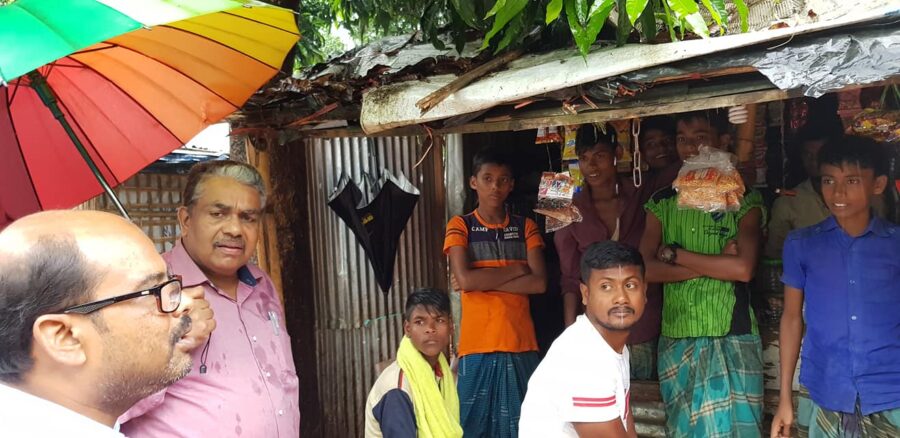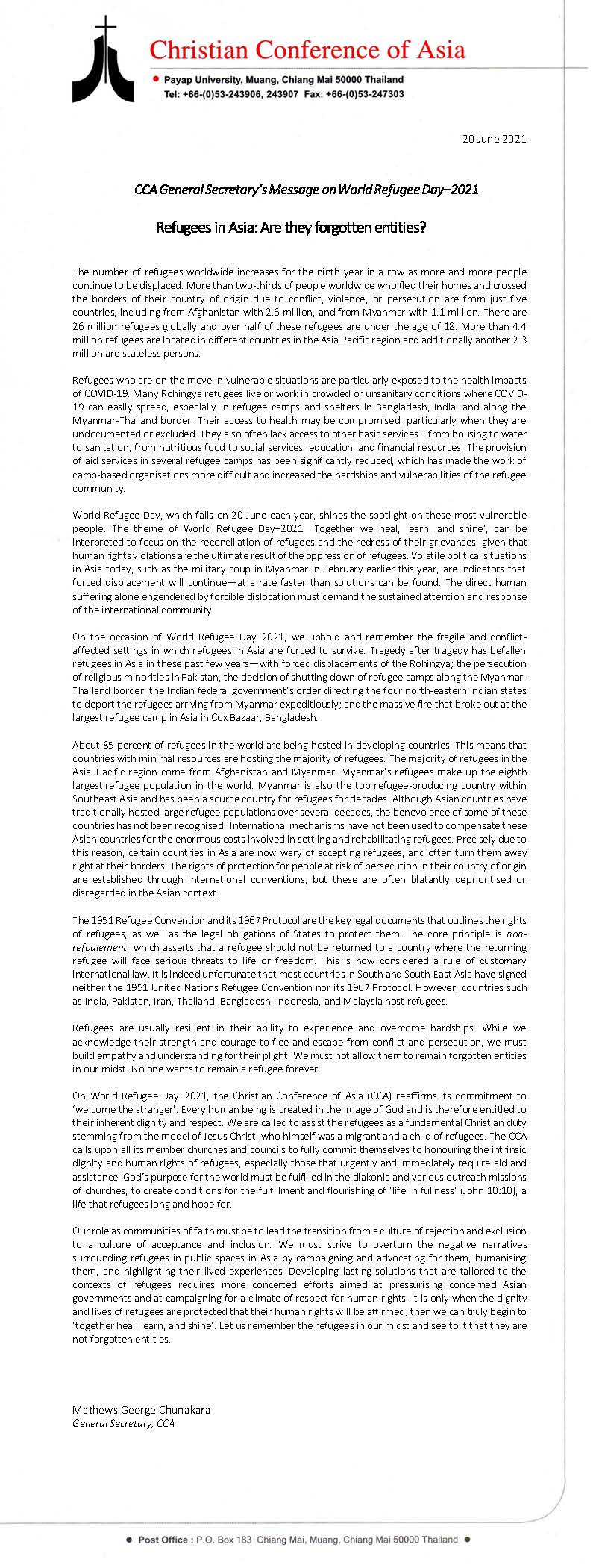Refugees in our midst should not be forgotten entities, says CCA General Secretary in a World Refugee Day message
 CCA General Secretary listens to young, unemployed refugees during his visit (2019) to the UNHCR managed Rohingya Refugee Camp in Cox’s Bazar, Bangladesh. An estimated 800,000 Rohingya refugees are still living in Cox'sBazar camp, which is the world's largest. ( File photo)
CCA General Secretary listens to young, unemployed refugees during his visit (2019) to the UNHCR managed Rohingya Refugee Camp in Cox’s Bazar, Bangladesh. An estimated 800,000 Rohingya refugees are still living in Cox'sBazar camp, which is the world's largest. ( File photo)
In a message issued on World Refugee Day–2021, the CCA General Secretary Dr Mathews George Chunakara said, “It is only when the dignity and lives of refugees are protected that their human rights will be affirmed; then we can truly begin to ‘together heal, learn, and shine’. Let us remember the refugees in our midst and see to it that they are not forgotten entities.”
The World Refugee Day (WRD) falls on 20 June each year, and the theme of WRD-2021 is ‘Together we heal, learn, and shine’.
“We must strive to overturn the negative narratives surrounding refugees in public spaces in Asia by campaigning and advocating for them, humanising them, and highlighting their lived experiences. Developing lasting solutions that are tailored to the contexts of refugees requires more concerted efforts aimed at pressurising concerned Asian governments and at campaigning for a climate of respect for human rights,” said the CCA General Secretary.
The number of refugees worldwide has increased for the ninth year in a row as people continue to be displaced.
More than two-thirds of people worldwide who fled their homes and crossed the borders of their country of origin due to conflict, violence, or persecution are from just five countries, including from Afghanistan and from Myanmar.
More than 4.4 million refugees are located in different countries in the Asia Pacific region, and additionally, another 2.3 million are stateless persons.
About 85 percent of refugees in the world are being hosted in developing countries with minimal resources. In Asia, countries such as India, Pakistan, Iran, Thailand, Bangladesh, Indonesia, and Malaysia host refugees.
The full text of the CCA General Secretary’s Message on World Refugees Day–2021 can be found here:











